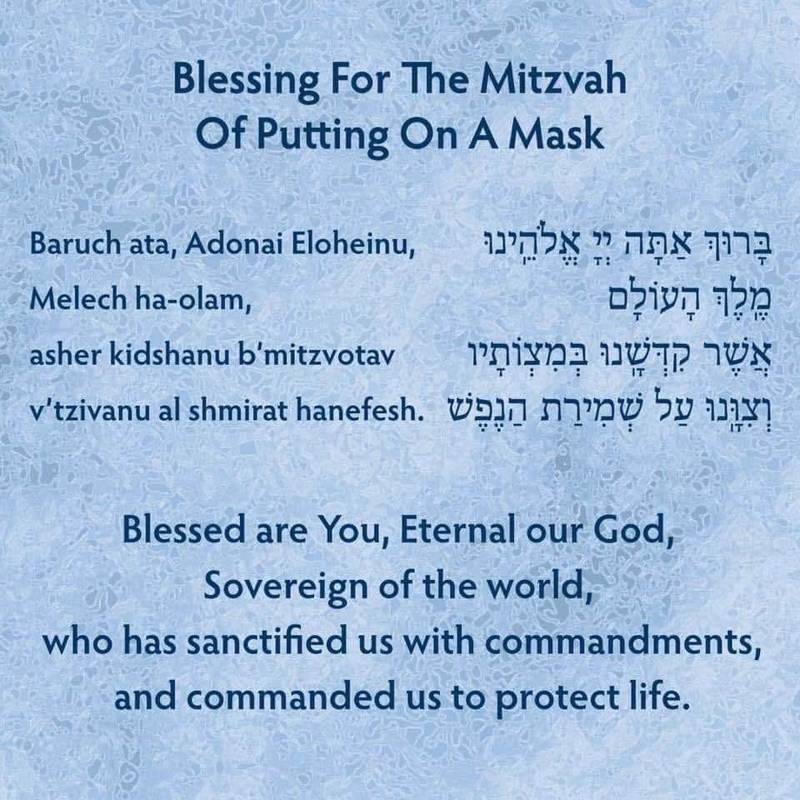05/05/2020 09:15:50 AM
Dear Congregational Family,
There is a custom to recite 100 blessings every day. The formula of a Beracha (blessing) is not found in the Torah itself. The development of the Beracha is found in Talmudic literature. There are different kinds of Berachot (blessings). Some are very formal, such as the ones found in the Siddur. Examples include the blessings upon arising in the morning, the blessings surrounding the Shma, and the blessings which comprise the Amidah. There are Berachot which express praise, petition, or gratitude in our relationship with God.
Based on a Scriptural verse, one recites three particular blessings after a meal. Individual blessings are recited for all kinds of reasons, most of which sanctify something that might be seen as ordinary. Some blessings thank God for a benefit or pleasure which should not be taken for granted. These Berachot include but are not limited to before eating food, affixing a Mezuzah, lighting candles, experiencing wonders of nature, appreciating the talents of distinguished people, and so much more.
Over the generations, Berachot have evolved to commemorate new ideas. As an example, the fourth blessing in the Grace after meals was added on by Sages around 130 CE to show gratitude to God for divine beneficence after an historical tragedy.
In sum, Berachot sensitize us to important spiritual values. There is no greater value than safeguarding one's life. Nowadays, the donning of a mask may be seen as a religious value and should be seen as such. The Torah specifically commands us to protect our bodies. Using similar language, a colleague of mine has composed a Beracha to be recited prior to donning the mask. The Beracha sensitizes us to understand health and safety standards as being in harmony with our Jewish value system. I encourage us to utilize the following contemporary Beracha during this unprecedented time in history.
Rabbi Howard Morrison




